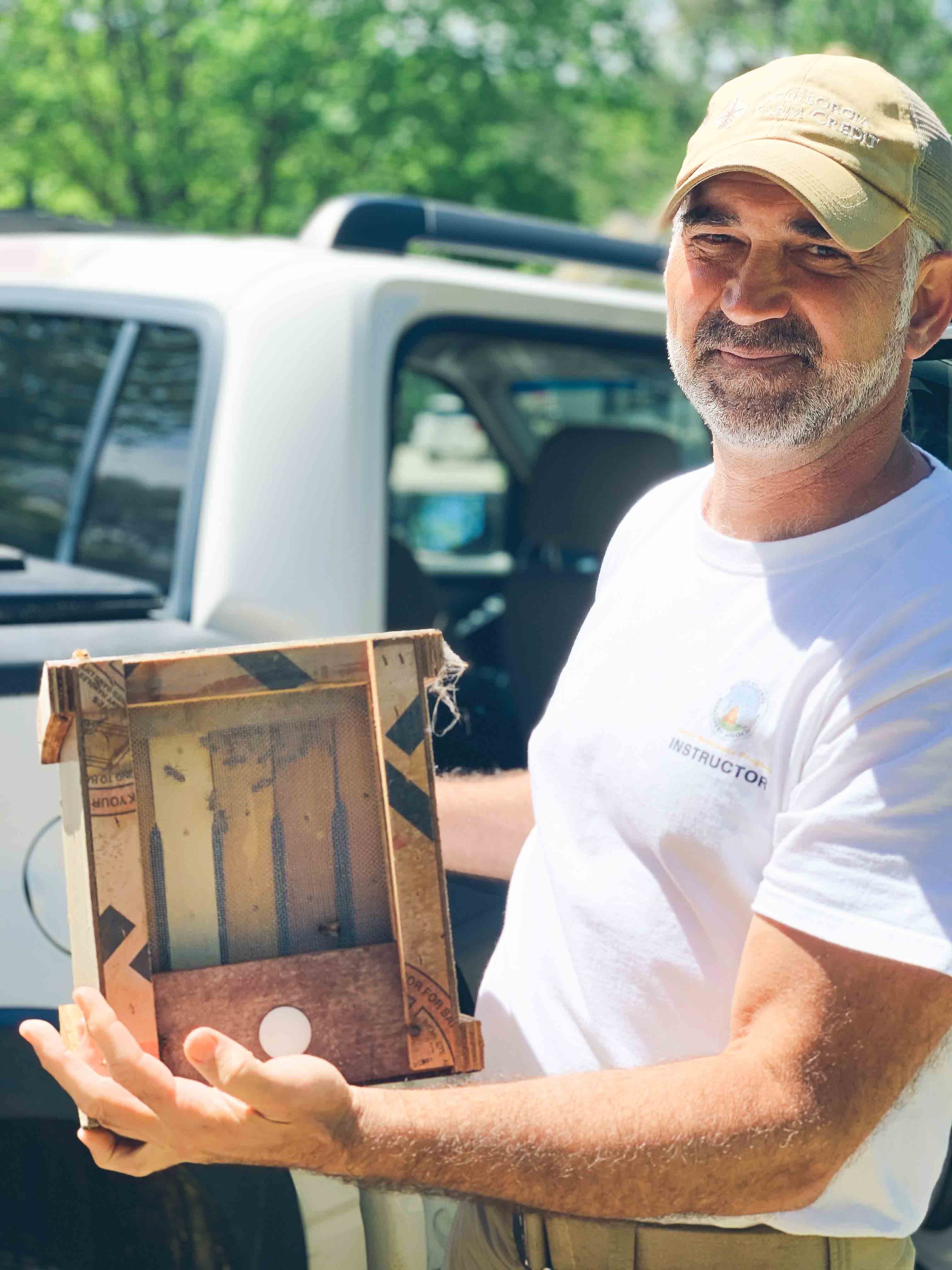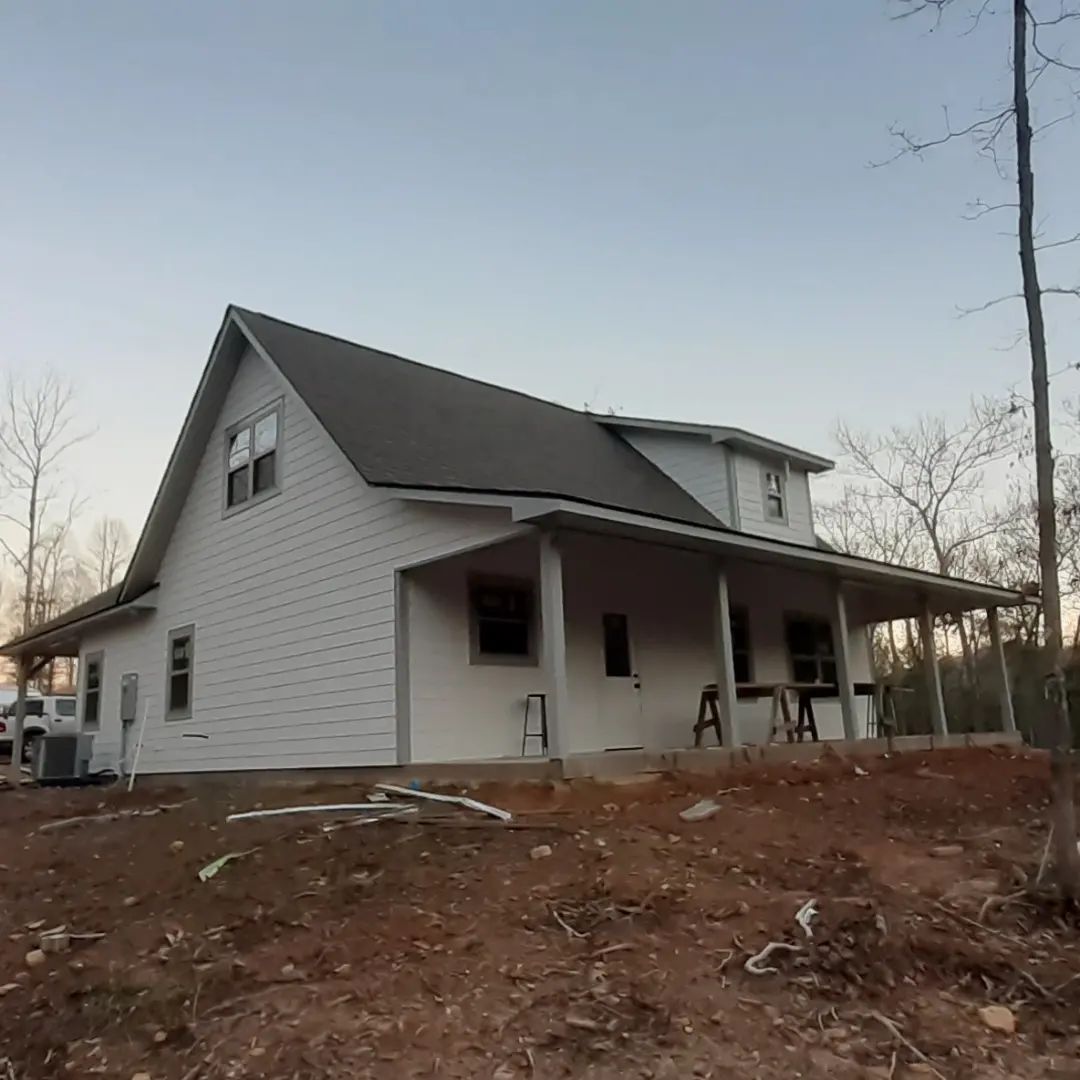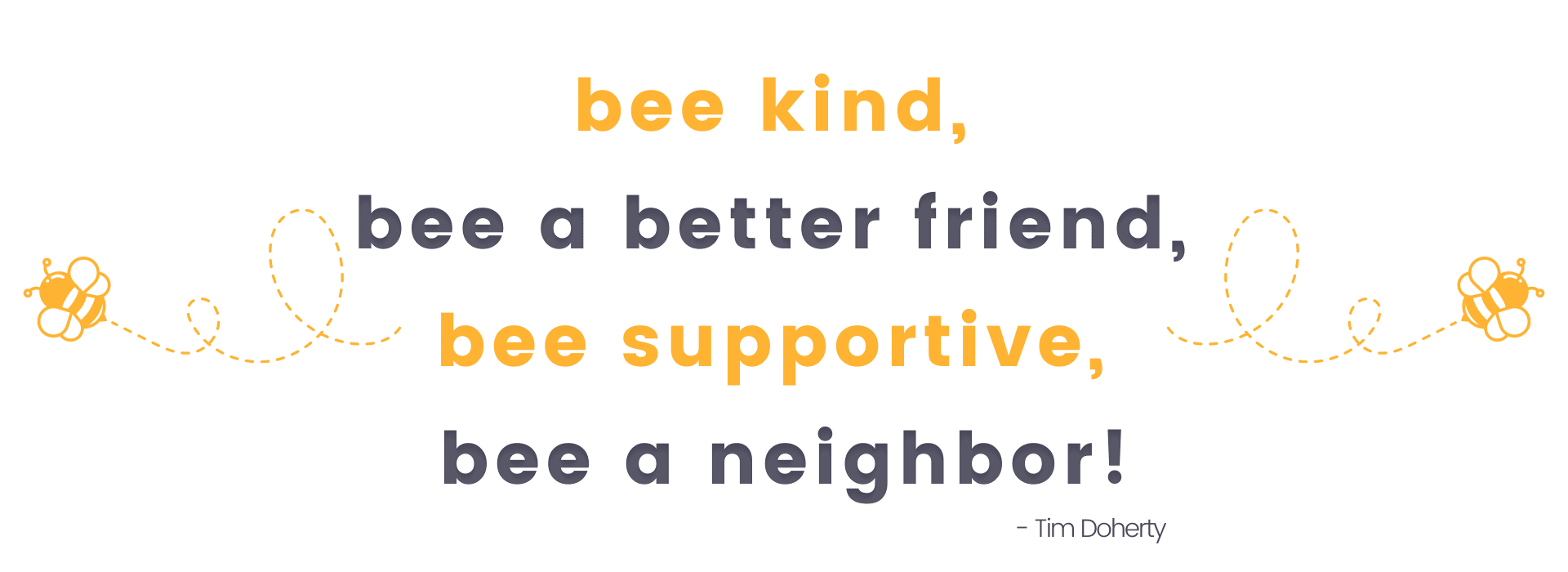 Pebble Tossers recently interviewed Tim Doherty, founder of Doc’s Healing Hives. Tim’s organization teaches and equips veterans with the materials needed to keep bees and harvest their honey. Many of these veterans have suffered traumatic brain injuries received as a result of their service. The primary goal of Doc’s Healing Hives is to help heal and reintegrate former service members into their community through the vocation of Beekeeping. The conversation focused on the progress made to create more opportunities for Doc’s Healing Hives to serve the Metro Atlantas veteran community and the importance of volunteers within the organization itself. Tim shared incredible advice on how we can all do better to make lasting friendships with the veterans in our lives.
Pebble Tossers recently interviewed Tim Doherty, founder of Doc’s Healing Hives. Tim’s organization teaches and equips veterans with the materials needed to keep bees and harvest their honey. Many of these veterans have suffered traumatic brain injuries received as a result of their service. The primary goal of Doc’s Healing Hives is to help heal and reintegrate former service members into their community through the vocation of Beekeeping. The conversation focused on the progress made to create more opportunities for Doc’s Healing Hives to serve the Metro Atlantas veteran community and the importance of volunteers within the organization itself. Tim shared incredible advice on how we can all do better to make lasting friendships with the veterans in our lives.
Pebble Tossers: I’ve seen that you are in the process of building a new Veteran Learning Center. What new opportunities do you hope this space will provide for members of your organization?
Tim: That space should be finished by the end of April (2023?). And it will allow me to run anywhere from two to four courses a year teaching veterans how to keep bees, and then will also be a retreat for them. And then I can also serve them individually. I actually had a veteran call me today and say, “Hey I’d like to learn how to keep bees, can you come to my farm?” And I said, “Well, how about you come to my farm, and I’ll teach you how to do hive inspections where there actually are bees.” Getting it built has been a three-year process so we’re very excited.
Pebble Tossers: Is the Veteran Learning Center going to be a place where veterans can stay overnight?
Tim: That’s the next phase, one that I really would like help with, is building a lodge. We have one tiny home that could house two veterans and I’d like to build two more container homes that would host another 12 veterans. So close to 15.
Pebble Tossers: Your Facebook page shows that Doc’s Healing Hives makes tequila honey that you sell at the local Farmer’s Market, and other flavors as well. What’s the process of infusing that unique flavor into the honey harvest?
Tim: It’s fun. I started with my regular honey, which is the best honey in the state of Georgia as judged by the Georgia Beekeepers Association at the Fall Conference this past year. And then I took that honey and another wildflower honey, blended those two together with bourbon and created my Bourbon Honey, which is amazing. Everybody loves it. And a lot of people wanted that and people suggested tequila. So I tried tequila and everybody loves it. The alcohol makes the honey sweeter. And then at the end, you get a slight finish of tequila. So it’s just a pleasant experience, everybody is very excited about it.
Pebble Tossers: What role do volunteers play in the daily operation and events you put on at Doc’s Healing Hives?
Tim: Well, there’s a variety of roles and it’s gonna expand because it used to be that it was just the instructors because I didn’t have a host facility. So now that I have my own facility, more volunteers are needed. From hosts, people to help serve food, to greeters, to people that help in the registration process, to people who just help to make the veterans feel comfortable. Because for a lot of them, the PTSD element, is huge. Most people don’t know this but Winnie the Pooh is based on PTSD. The author of Winnie the Pooh had PTSD. If you look at Piglet, he is always anxious. Rabbit can never sit still. Owl is always thoughtful. Eeyore is depressed. Those are all elements of PTSD that a veteran can experience at any different time. So when you do something like this, not only do you have to be the subject matter expert, you also have to be able to meet the needs of individuals that are experiencing these challenges. So that’s something that hosts or volunteers can help with, which will be new for me because I never operated the host facility, I was just the program facility coordinator.

Pebble Tossers: What are some of your favorite parts of the work you do with your organization? What’s rewarding to you?
Tim: It’s a combination, I love just being with the bees, getting into the beehive. Because whatever is bothering you completely goes away and all you’re thinking is “this is amazing”. I’ve got anywhere from 20 to a hundred thousand bees looking at me and you get an entire life cycle in every frame of bees you pull out. From pupa to larva to bee, it’s just incredible. And I don’t know how else to explain that. Then getting to share that experience, it’s amazing.
Pebble Tossers: It seems like a great conduit to have fun and also make important connections with veterans and anyone wanting to get involved.
Tim: It helps the veterans reconnect to their own families and to their own communities. And that’s the whole point, that when you go into combat, you get connected to that lifestyle, that purpose. Then when you come home you don’t have that anymore. So it reconnects them to a new purpose, which then helps them integrate back into their own community.
Pebble Tossers: What are some of the ways Doc’s Healing Hive has been able to interact and become a resource to the surrounding Atlanta community?
Tim: One of my favorite stories is the Shepherd Center, we’re a nationally approved Shepherd Center activity. To be part of the Shepherd Center Share Program you have to have a traumatic brain injury and PTSD for a traumatic brain injury. So what that means is when a veteran checks into the Shepherd Center, they do an inventory for something that they might be interested in. If they choose Doc’s Healing Hives or beekeeping as something that they’re interested in learning about then I will meet with their recreational therapist and the veteran at a Park in Buckhead that we created with Livable Buckhead and Buckhead Rotary for this exact purpose. To be a training center for veterans that were in the Share Program. So we’ve created this educational bee garden in Buckhead, and then that’s been extended to becoming a Share Activity for the veterans going through the Shepherd Center Share Program. And then any time I’m at a farmer’s market, I’m always raising awareness. Do you know how many veterans kill themselves every day?
Pebble Tossers: No, I do not.
Tim: It’s 22. There was one this past Saturday that I know personally that killed himself. That was another veteran farmer. People just don’t realize that there’s such a disconnect between a deployment lifestyle and then turning back to your civilian lifestyle, that it’s hard for the veterans to adjust. So creating that awareness that veterans need help. A little bit of empathy, a little bit of community.
And then the other side of that is we always do pollinator education, which people don’t understand the importance of bees. There are only around 2 million bee colonies in America, and almost all of those are required to pollinate just the almonds in California. So almost every beehive in America goes to California every almond season to pollinate the almonds. Or the fact that 40% of your food is created by the pollination of bees. So if you didn’t have the honey bees pollinating the vegetables and the fruit, then your diet would look completely different.
Pebble Tossers: Do you have any advice for someone looking to get more educated and more supportive of the troops and former service members in their community
Tim: It’s not really that complicated. All of us know a veteran, and it’s as simple as talking to the individual and spending time with that person. One of my best experiences this past year, I haven’t been to a major sporting event since I deployed in 2015-2016. And I had not been to anything larger than a high school football game. I had been invited to baseball games, basketball games, football games, and I always declined because the environment was just too much. This past College Bowl season, my friend Mike told me “Michigan State is going to the Peach Bowl here in Atlanta”, and said we should go. And I said, “well that’s going to be a lot for me buddy, but I’ll give it a try”. So he and I went, it was the first big sporting event that I had been to in five years, which meant that I could now do it again. But before, the anxiety of being around that large of a crowd prevented me from attempting it. But having the invitation, “do you want to come over and grill a hamburger”, and just having those casual conversations shows you actually care. It really isn’t that complicated. Wanting to be invested and asking specific questions, as opposed to “how are you doing”. Because if you ask us how we’re doing we’re just going to tell you “fine” because that’s what we’ve been trained to tell you. But we’re not. So when you dig a little bit deeper and you show a little bit more investment. I don’t know, going to that football game was a big deal for me.
Pebble Tossers: I think everyone wants to be a better friend, however they can.
Tim: I think you just summed it up, be a better friend, right? I think that’s what’s so hard for us. That communities were very different and people lived in the same community and you came home to your community and there was a different kind of welcoming, or a different kind of connection and that doesn’t necessarily exist anymore.

Pebble Tossers: Anyone can read that and feel like they can do that.
Tim: He broke a barrier for me. When my daughter said, “Hey it’s Daddy Daughter Day at UGA, we’re going to a basketball game do you want to come”. Before I would’ve said, “I don’t know”. But because Mike said “I think we can do this, nobody’s gonna be there”, I could. It was the encouragement and the support and basically just being a good neighbor.
Pebble Tossers: Is there anything that you want readers to know about Doc’s Healing Hives, the work that goes on there, or anything at all?
Tim: I think it’s important for people to be kind. It’s hard being deployed, your brain becomes rewired. We can’t help the way we are.
Pebble Tossers: That’s a great advice. Thank you so much for that, I think that’s a great way to end the interview. That’s an important note to end on that really ties it all together, what we’ve mentioned about being a community resource and how we can be more supportive. Be kind, be a better friend, be supportive, be a neighbor.
Tim: And make sure every time you spell “bee”, you use two E’s. Bee kind, bee a better friend, bee supportive, bee a neighbor!
Here is a link to the Doc’s Healing Hives Facebook page, where most of the organization progress and updates are recorded. Doc’s Healing Hives also has a Gofundme page fordonations for the Veteran Learning Center..

